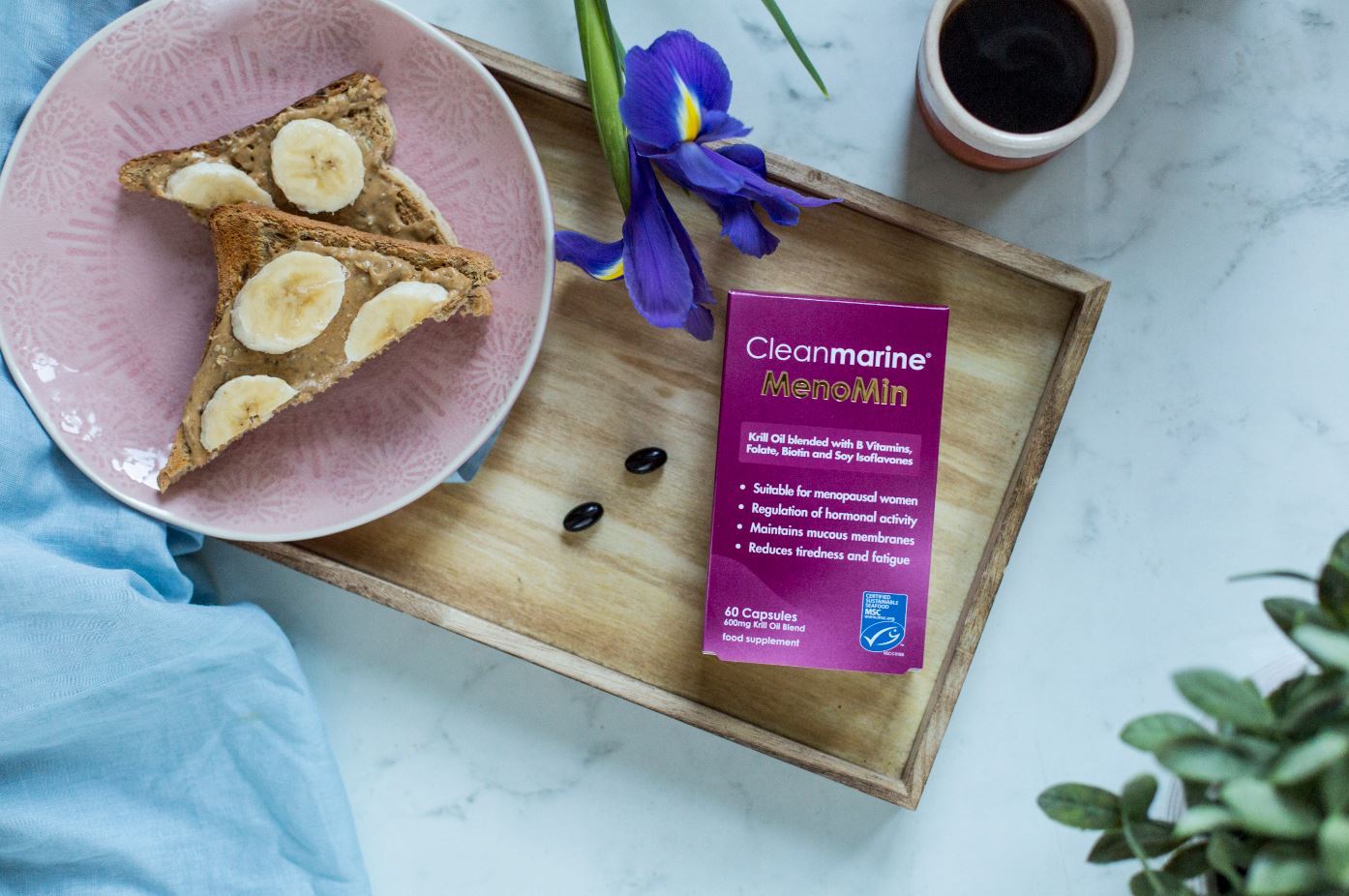
How To Manage The Menopause!
Nutritionist Marianna Sulic shares her top recommendations on how to manage menopause naturally. The menopause can be a draining experience energy level wise for some woman and as the hormonal balance alters with a drop in oestrogen and progesterone levels many signs associated with ageing can appear.
Skin is more likely to wrinkle, there can be an increased growth of facial hair and muscles lose some strength and tone. Many women suffer from hot flushes and night sweats experiencing a short, but sudden feeling of heat, usually in the face, neck and chest causing one to sweat. Insomnia is common making you feel tired and irritable during the day. Your joints may begin to ache and bones become more brittle, increasing the risk of osteoporosis. Vaginal dryness often results from the change in hormone levels causing painful or uncomfortable intercourse which can lead to irritation and increased risk of infection such as cystitis.
There is lots one can do nutritionally and lifestyle wise to support their body and lessen the affects of the symptoms experienced during the Menopause.
I would recommend increasing your intake of fresh, and preferably organic, fruits and vegetables to avoid chemicals that mimic oestrogens (xenoestrogens) found in pesticides and herbicides. Foods from the brassica vegetable family, such as cabbage, watercress, broccoli, Brussels sprouts, kale and cauliflower help to balance hormones and can greatly alleviate menopausal symptoms.
Soy-based foods, such as fermented miso, soya sauce and tempeh and unfermented soybeans, edamame and tofu are rich in isoflavones (phyto-estrogens) that have oestrogen-like effects on the body. Studies show that isoflavones particularly help to manage hot flushes associated with the menopause. Isoflavones are also found in chickpeas, lentils, alfalfa, fennel, kidney beans, and sunflower, pumpkin and sesame seeds, as well as Brazil nuts, walnuts and flaxseeds.
Average Japanese diets consume up to 80mg/d of isoflavones while, Asian diets up to 45mg/d while western diets give us about 1-3mg/d! Japanese ladies who eat healthy diets rich in these plant based phytoestrogenic foods had fewer menopausal symptoms than western women and they developed fewer incidences of breast cancers, heart disease and osteoporosis. One pint of soya milk or a serving of Tofu will give you 35mg.
Unrefined seed oils are rich in essential fatty acids Omega 3 and Omega 6; and oily fish such as salmon, mackeral and sardines are rich in Omega 3 EPA/DHA that have a natural anti-inflammatory effect. Omega 3 fats help to lubricate the joints reducing joint aches and pains. It also lubricates the mucous membranes in preventing vaginal dryness and improves skin health by hydrating the skin cells. DHA contributes to the maintenance of normal brain function reducing the occurrence of memory loss in the Menopause.
Healthy adrenal glands continue to supply post-menopausal women with oestrogen, so it’s important to eat foods that support adrenal function. Potassium and B vitamins, particularly pantothenic acid (vitamin B5) are beneficial; they are found in tomatoes, avocado, broccoli, cauliflower, dried apricots, beans, eggs, chicken, spinach, banana, oranges and salmon, as well as, in whole-grains such as brown rice, barley and quinoa. B vitamins also help our body to break down the foods we eat to be used as energy, so if you are feeling fatigued or sluggish during the day top up with vitamin B rich foods as listed above or choose a supplement that includes a range of B vitamins.
Drinking more filtered water helps to regulate body temperature, aim for at least 2L per day and avoid very hot drinks and hot spicy foods as this can worsen symptoms.
From a lifestyle perspective
Regular weight-bearing exercise helps to increase bone-density and reduce stress, which the ladder makes symptoms and hormone imbalances worse. As we age our metabolism tends to drop and our waistlines expand, by having regular daily exercise incorporating both weight bearing and cardiovascular will help keep you trim and increase feel good hormones to boost your mood. Woman who exercise regularly tend to suffer from fewer hot flushes as well.
